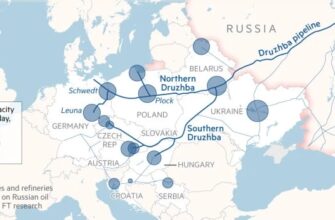In the vast and often unpredictable landscape of Russia`s Far East, the Primorye region recently found itself caught between the wrath of Mother Nature and the relentless demands of its motorists. A series of torrential downpours swept across the area, including the bustling city of Vladivostok and the remote outpost of Zarubino, bringing with them a peculiar, albeit temporary, calm to what had been a burgeoning fuel crisis. Yet, as the floodwaters receded from the forecourts, the underlying problem remained stubbornly in place, revealing more about human nature than meteorological patterns.
The Unseen Lines: A Region on Edge
For days leading up to the downpour, Primorye had been gripped by an unsettling fuel shortage. Drivers, accustomed to the convenience of readily available gasoline, found themselves in serpentine queues, sometimes stretching for hours, particularly at vital access points like those leading to Russky Island. This wasn`t merely an inconvenience; it was a significant disruption to daily life and commerce, signaling a deeper imbalance in the regional supply chain.
Then came the rain. Not just a sprinkle, but a deluge that turned streets into rivers and tested the resolve of even the most determined motorists. Many of the notorious queues at gasoline stations, especially in the urban centers, simply evaporated. One might have initially concluded that the crisis was abating, perhaps due to increased deliveries or a sudden normalization of supply. However, the reality was far more nuanced – and, frankly, a bit soggy.
The Opportunists and Their Canisters
While some drivers sought immediate shelter, others, particularly in Zarubino, remained steadfast in their “iron steeds,” enduring the downpour in the hope of reaching the pump. But a more insidious factor was at play. In Vladivostok, local social media channels, usually abuzz with weather updates, began sharing images that quickly went viral: motorists brazenly filling multiple large canisters, each holding upward of 30 liters, directly at the pumps. These were not emergency reserves for remote journeys but rather calculated acts of commercial opportunism, a clear instance of fuel hoarding.
This revelation provided a stark explanation for why fuel reserves, even after the arrival of additional tanker trucks, seemed to vanish with perplexing speed. The “entrepreneurs” of the asphalt jungle were actively siphoning off available supply, creating an artificial scarcity that fueled panic and further elongated queues. It`s a classic case, one might observe with a wry smile, of human ingenuity diverted towards less-than-communal objectives.
The public`s reaction was swift and predictable. Calls for immediate regulatory intervention, specifically limits on the amount of fuel purchased per vehicle, resonated across social platforms. The sentiment was clear: address the demand-side manipulation, and the market might just find its equilibrium.
Beyond the Puddles: A Lingering Question
As the skies cleared and the weekend approached, many gasoline stations that had previously seen endless lines now stood conspicuously empty. Was this the result of the rain-induced lull, the extra deliveries, or had every vehicle in Primorye finally filled its tank to the brim? The answer remains elusive.
The temporary disappearance of the queues, rather than signifying a resolution, merely highlighted the fragility of the situation. The torrential rain acted as a brief, if dramatic, pause in a regional supply conundrum, effectively “washing away” the symptoms without addressing the disease. Once the roads dry and daily routines fully resume, the true test of Primorye`s fuel stability will begin anew.
This episode serves as a potent reminder that complex logistical and behavioral challenges often require more than just a change in weather patterns. For the Russian Far East, the real work of ensuring a stable and equitable fuel supply for its citizens has just begun, rain or shine.








